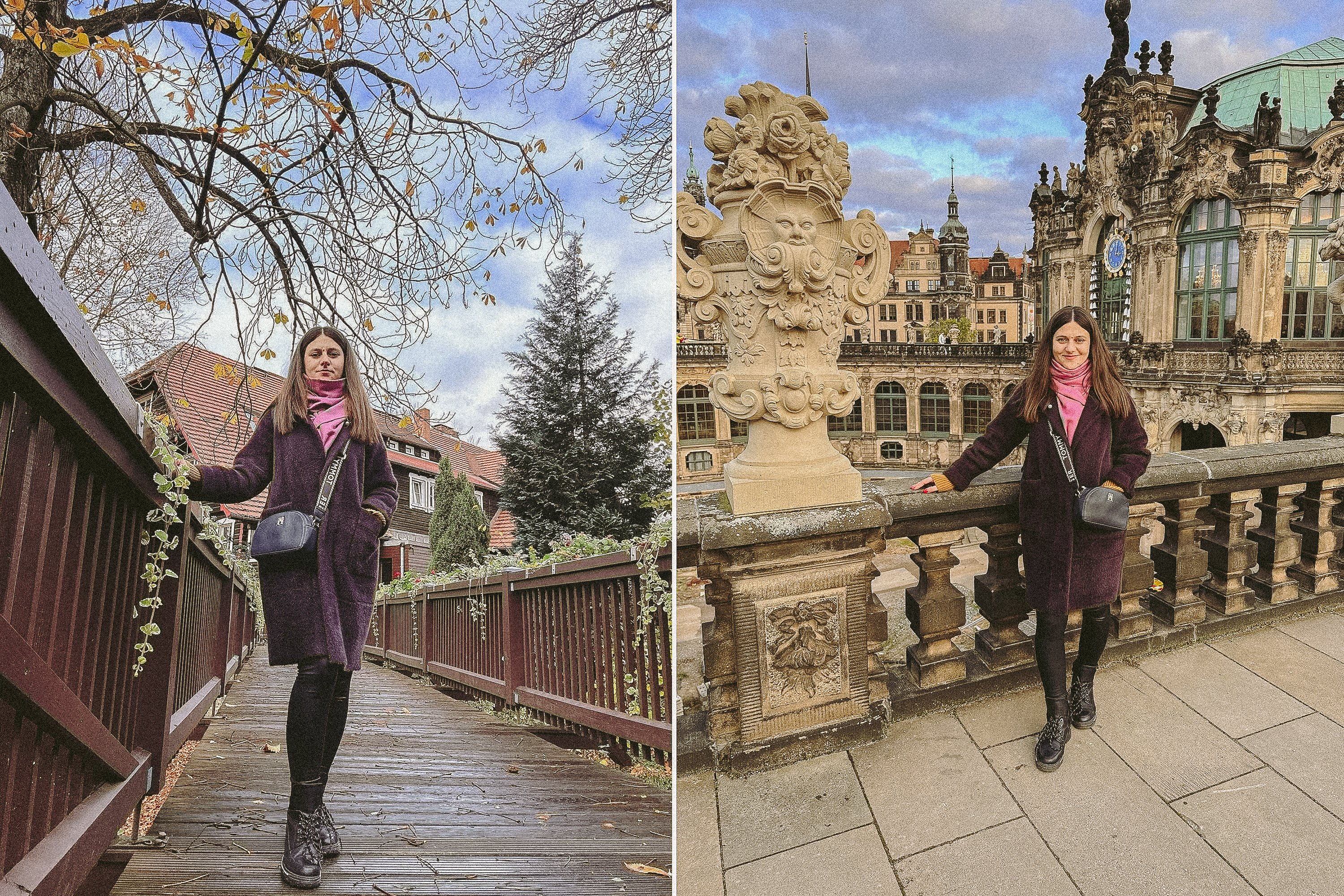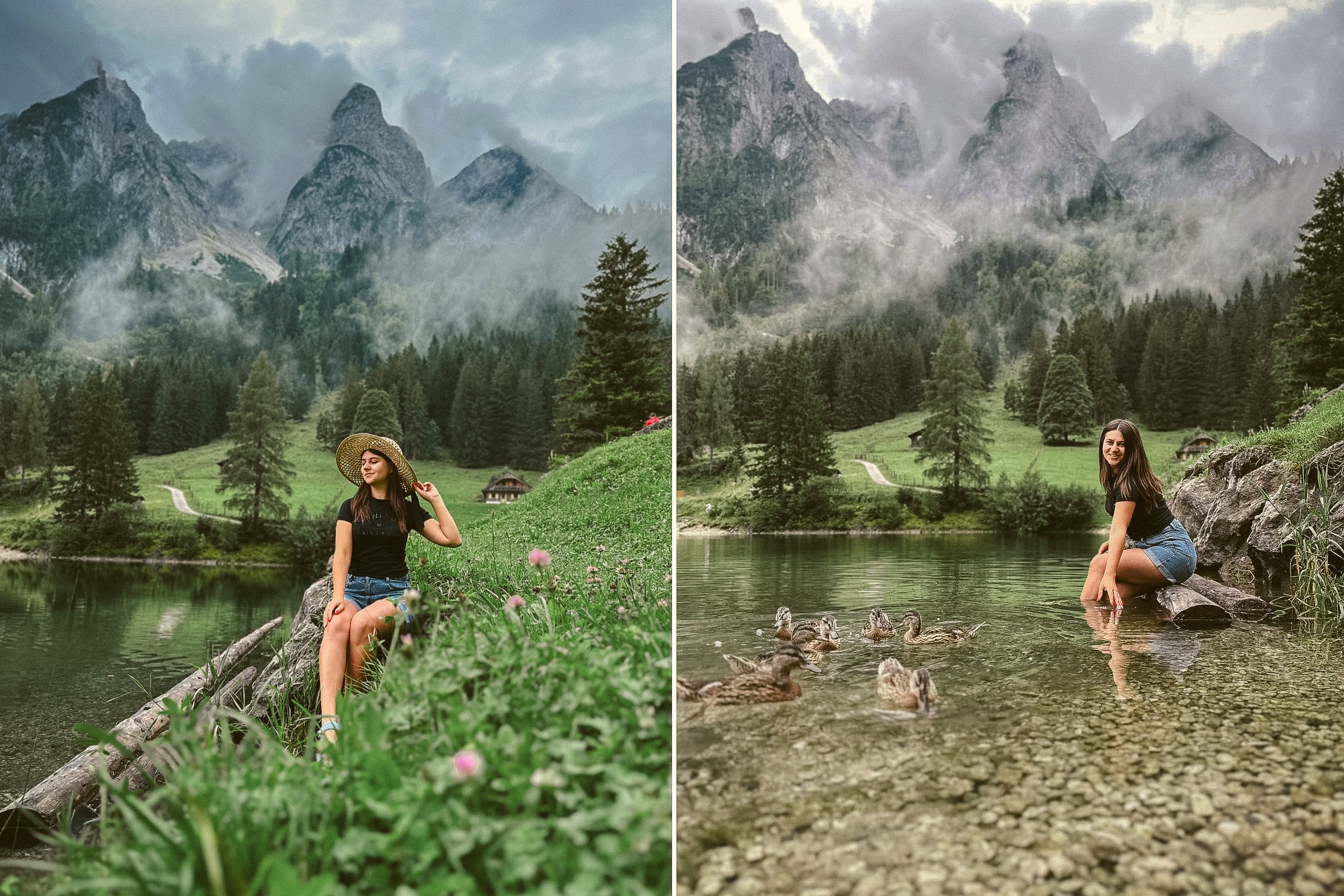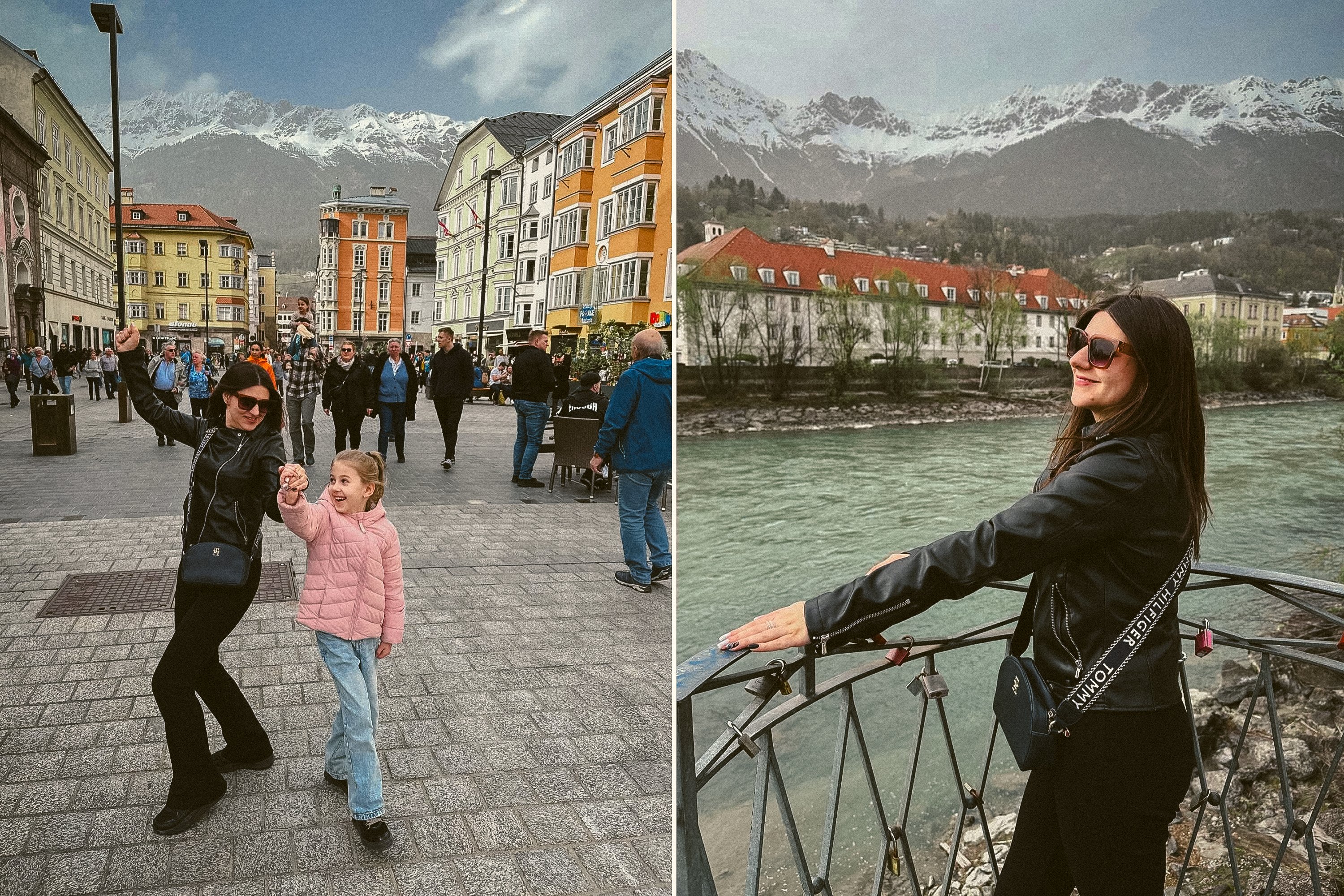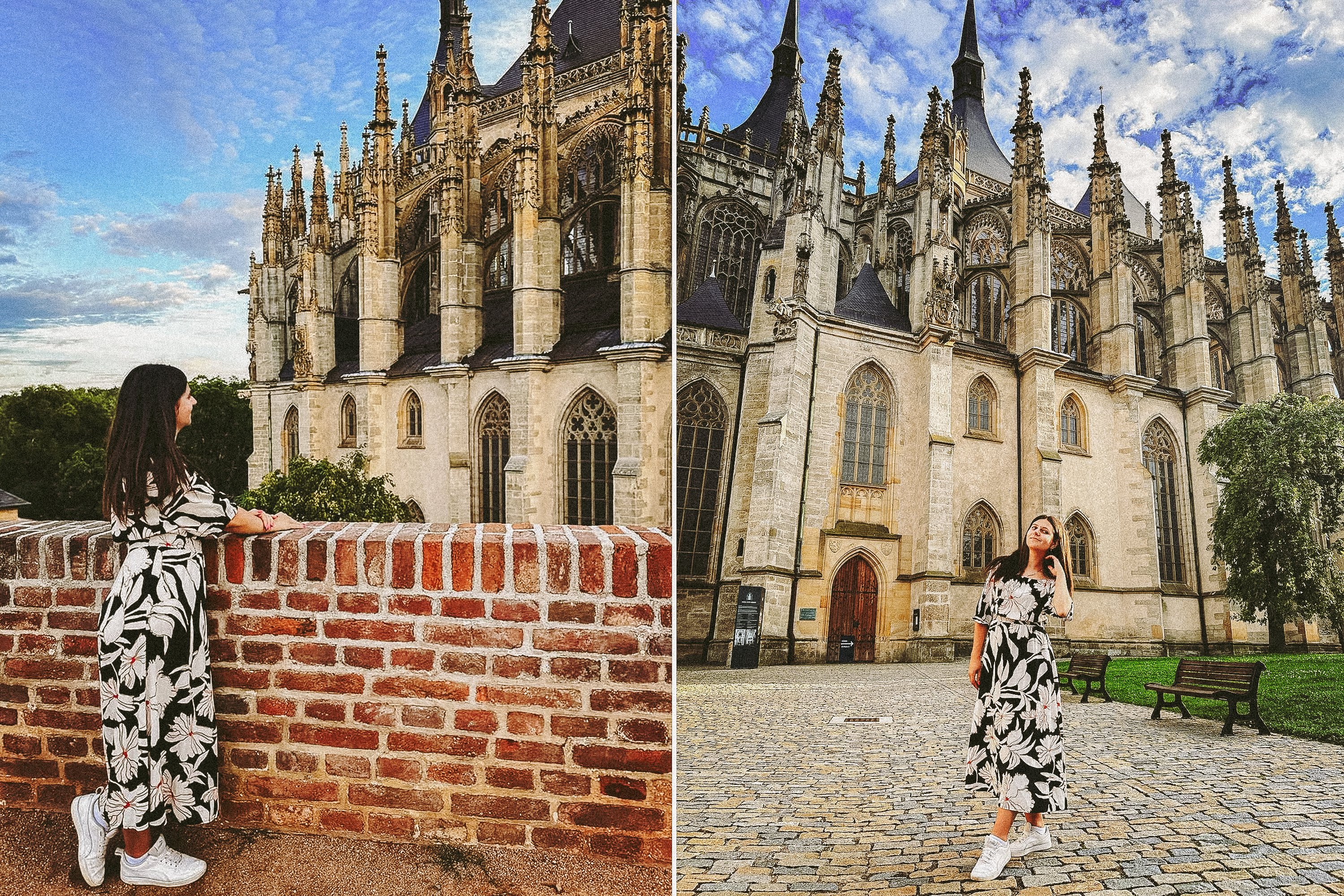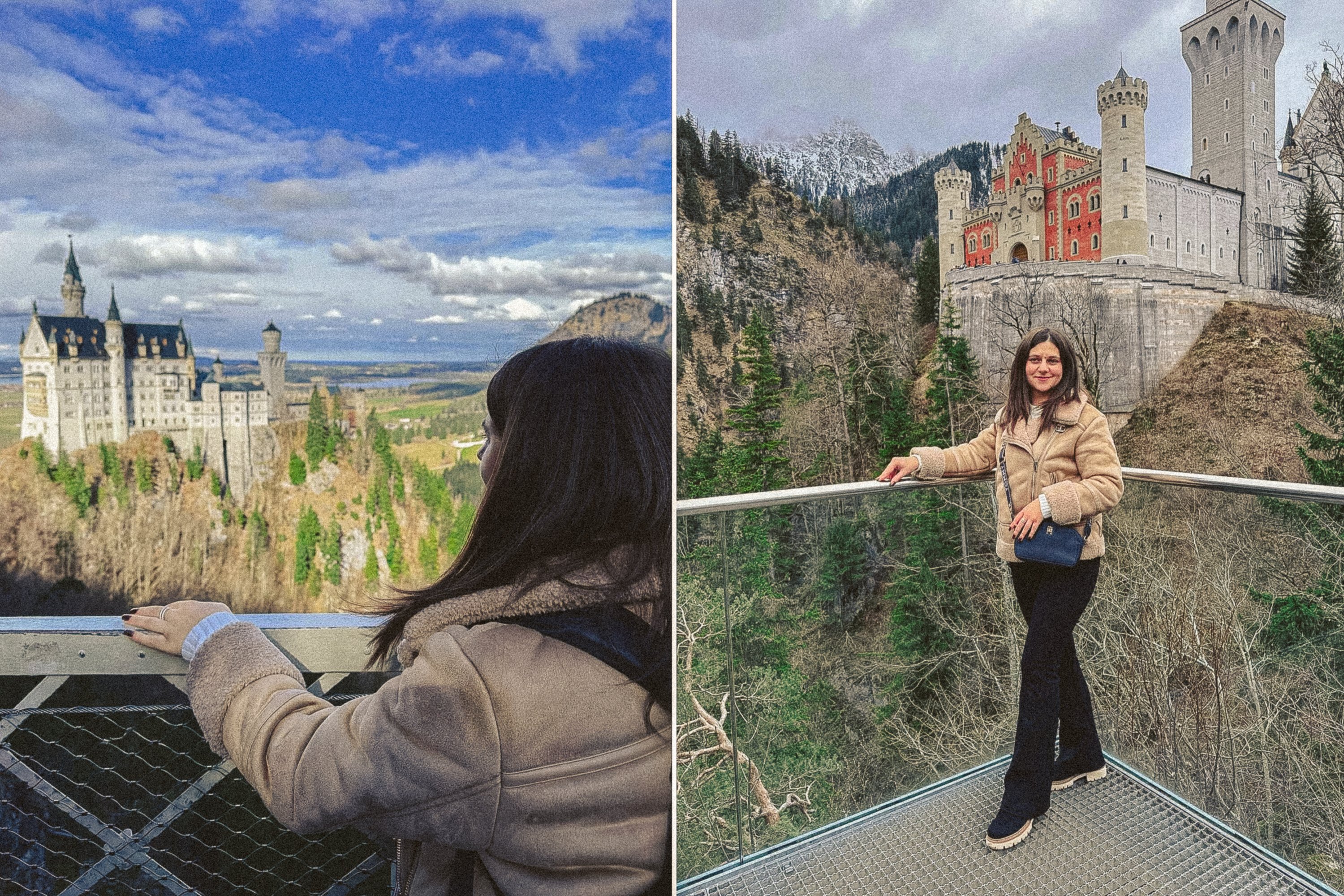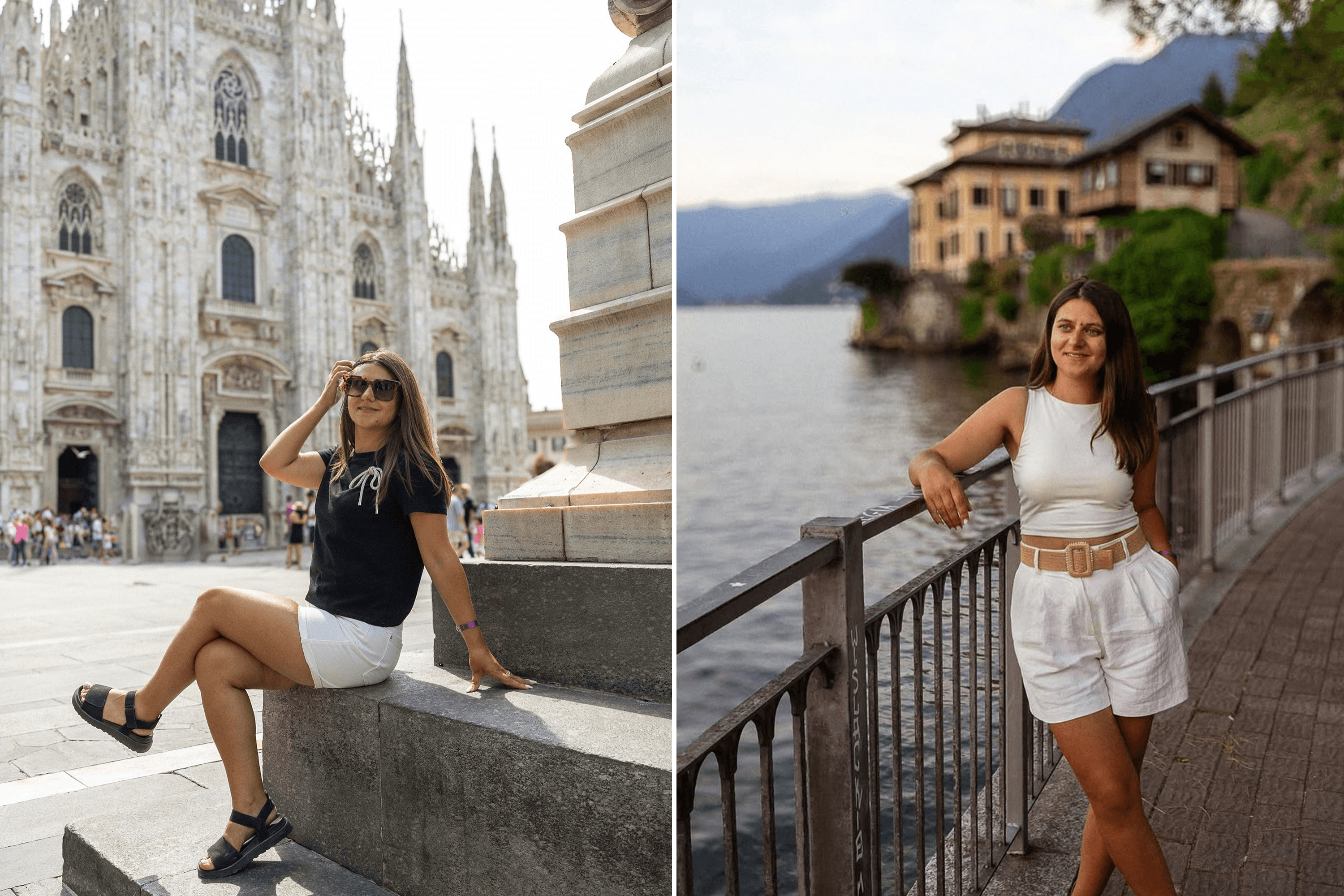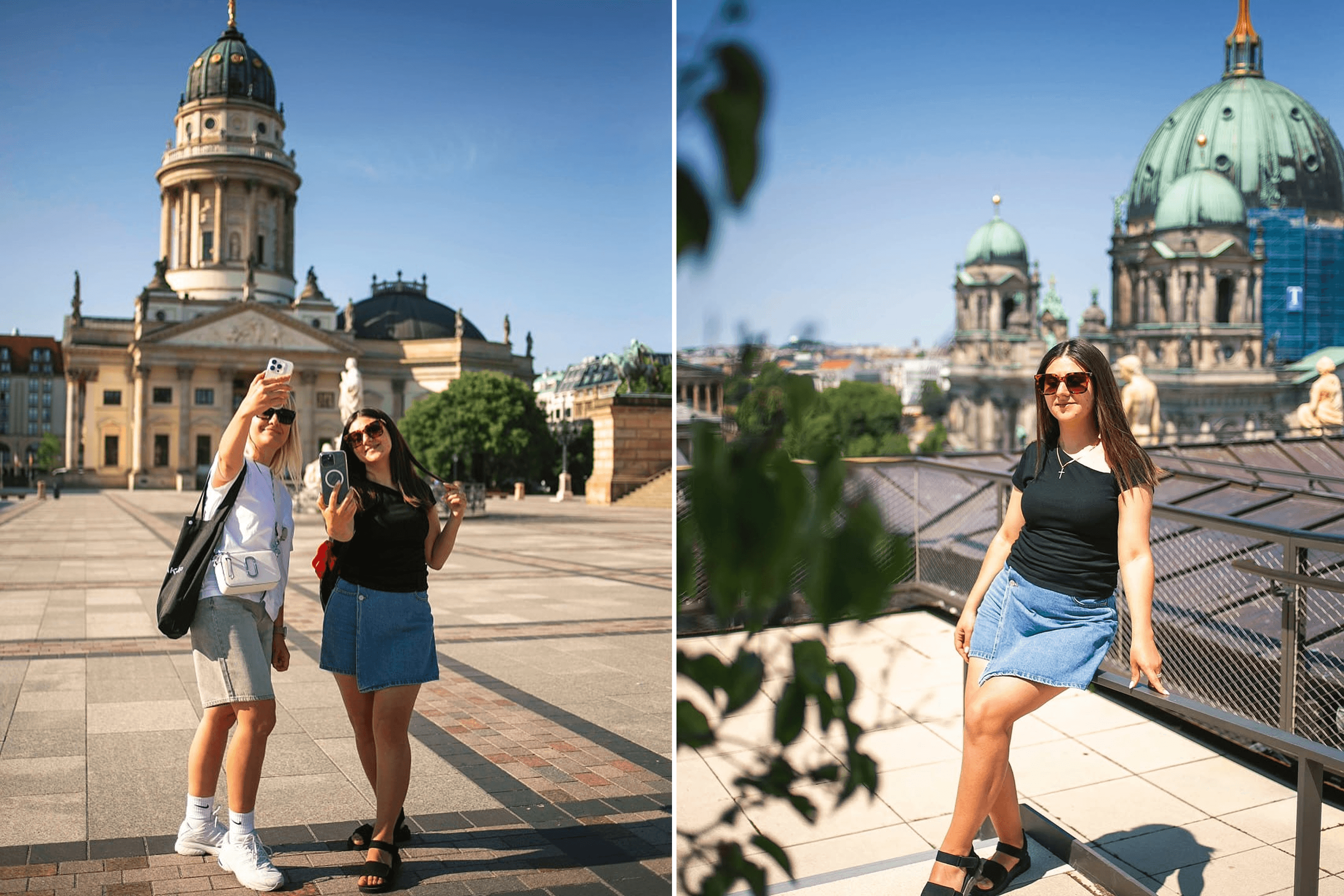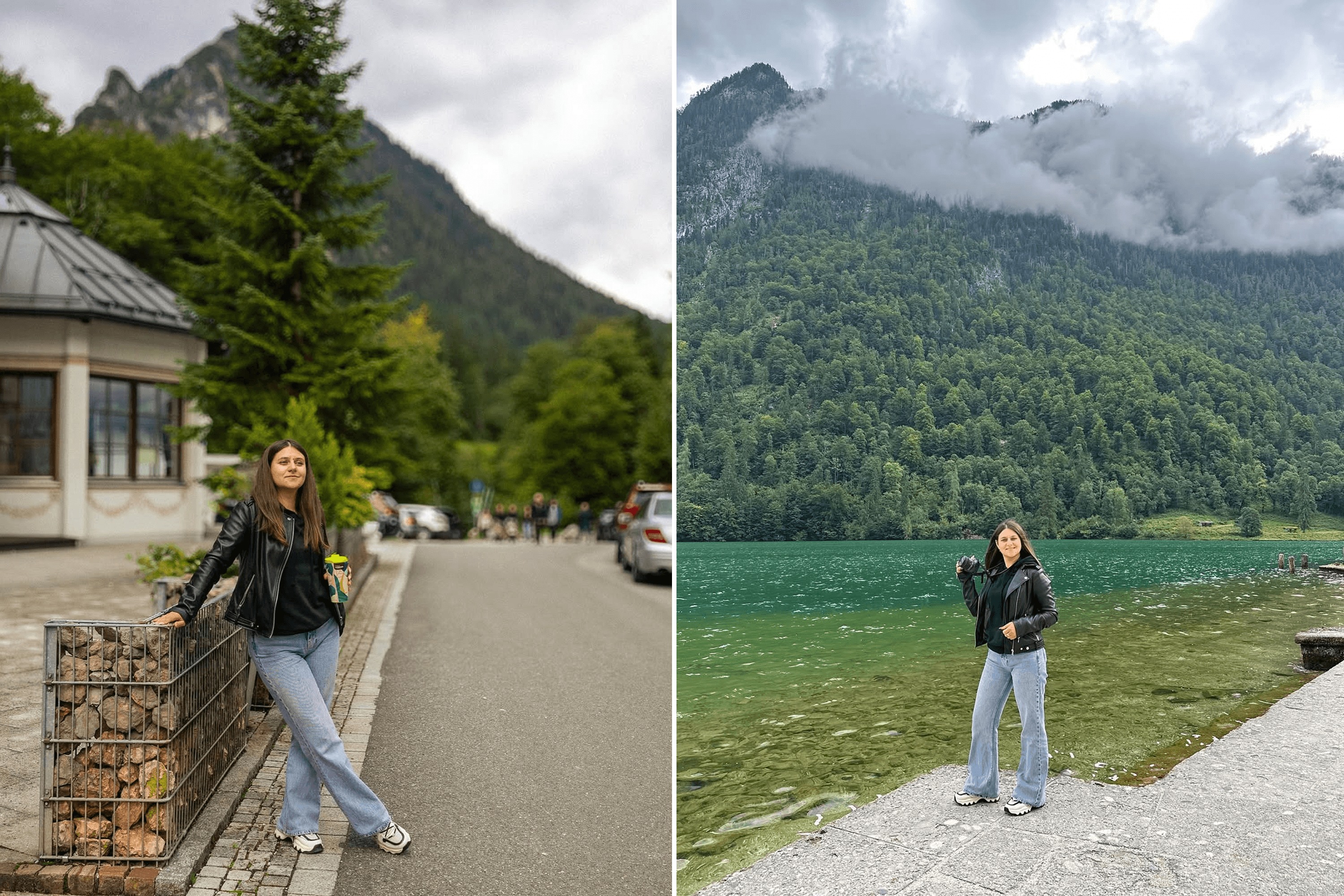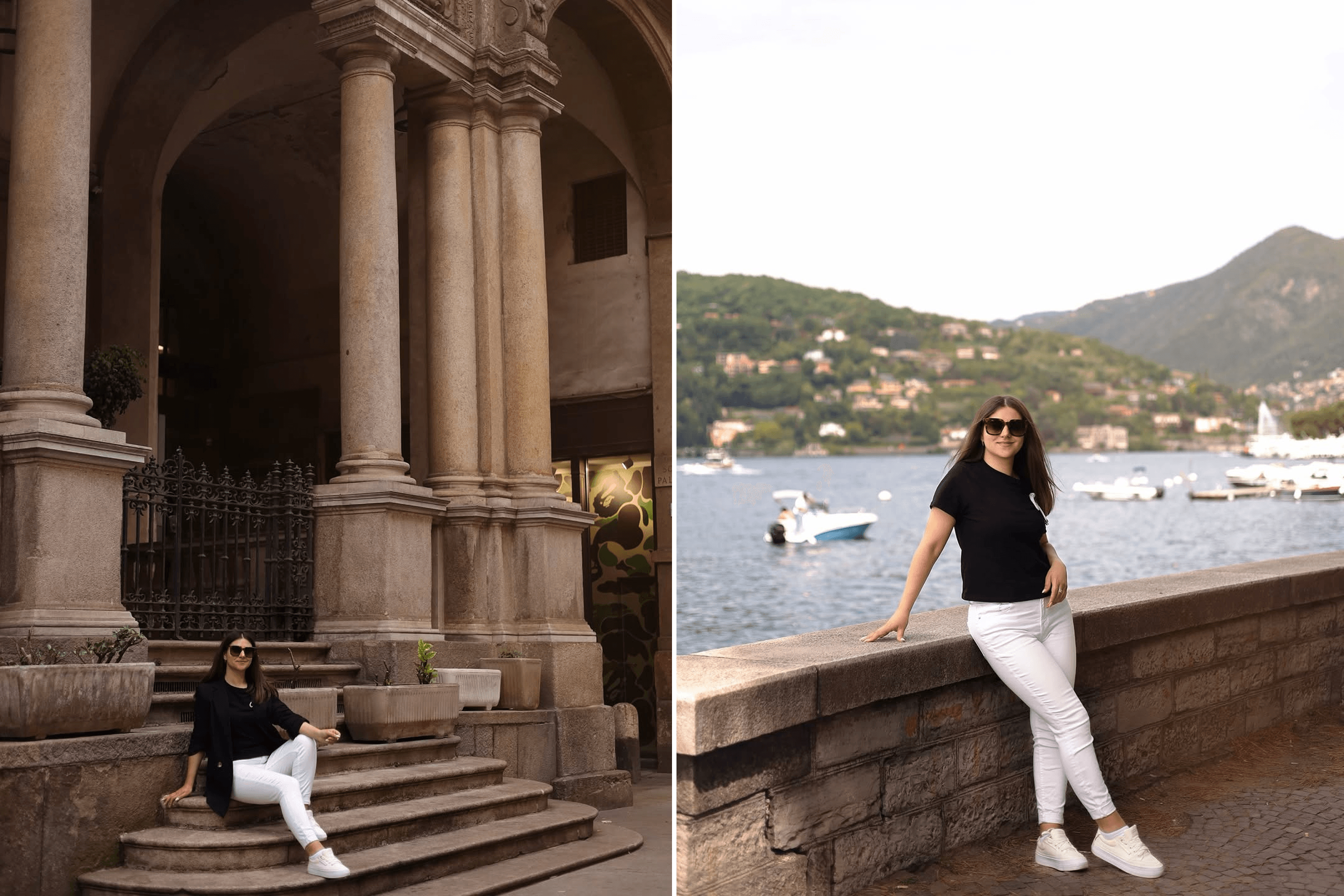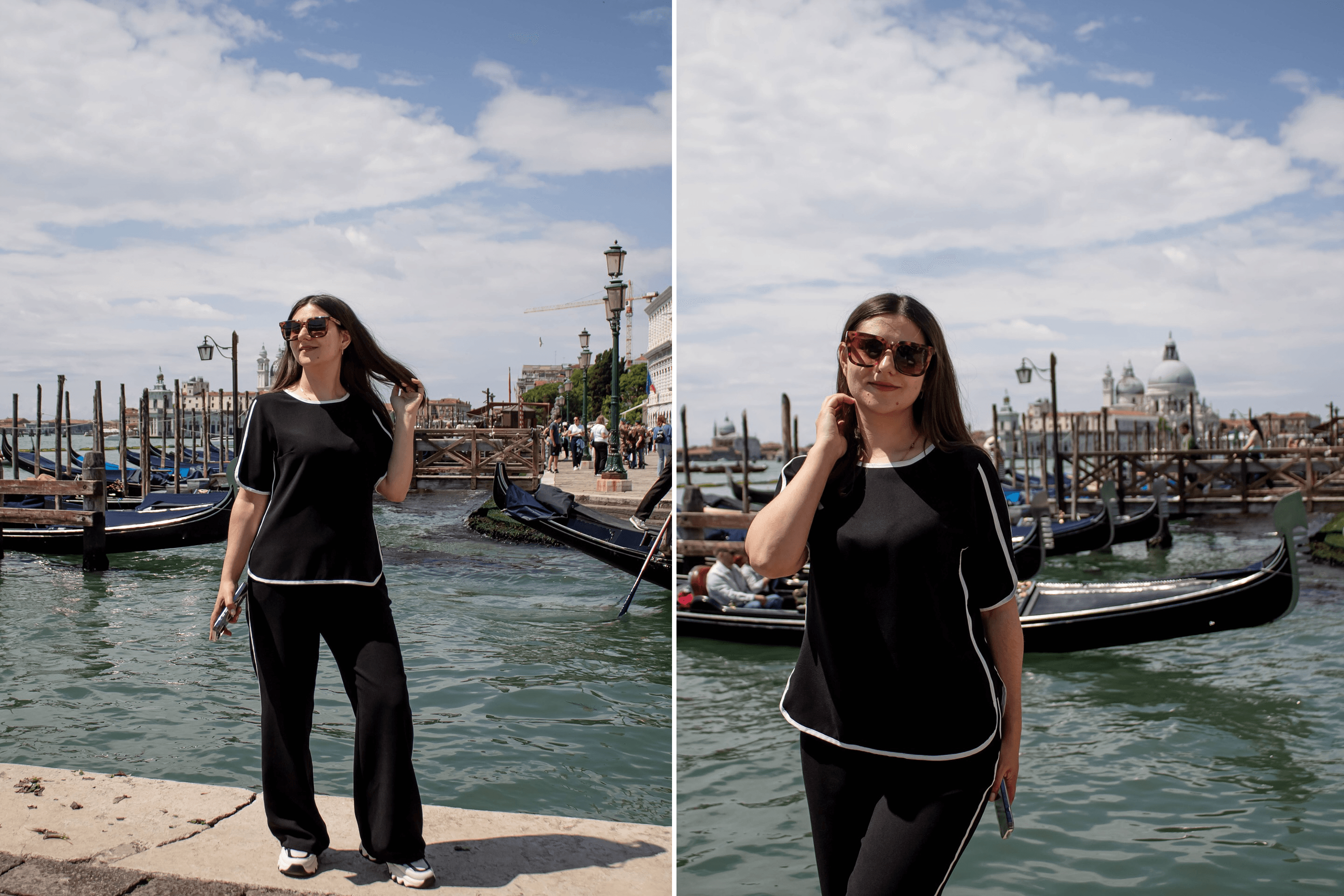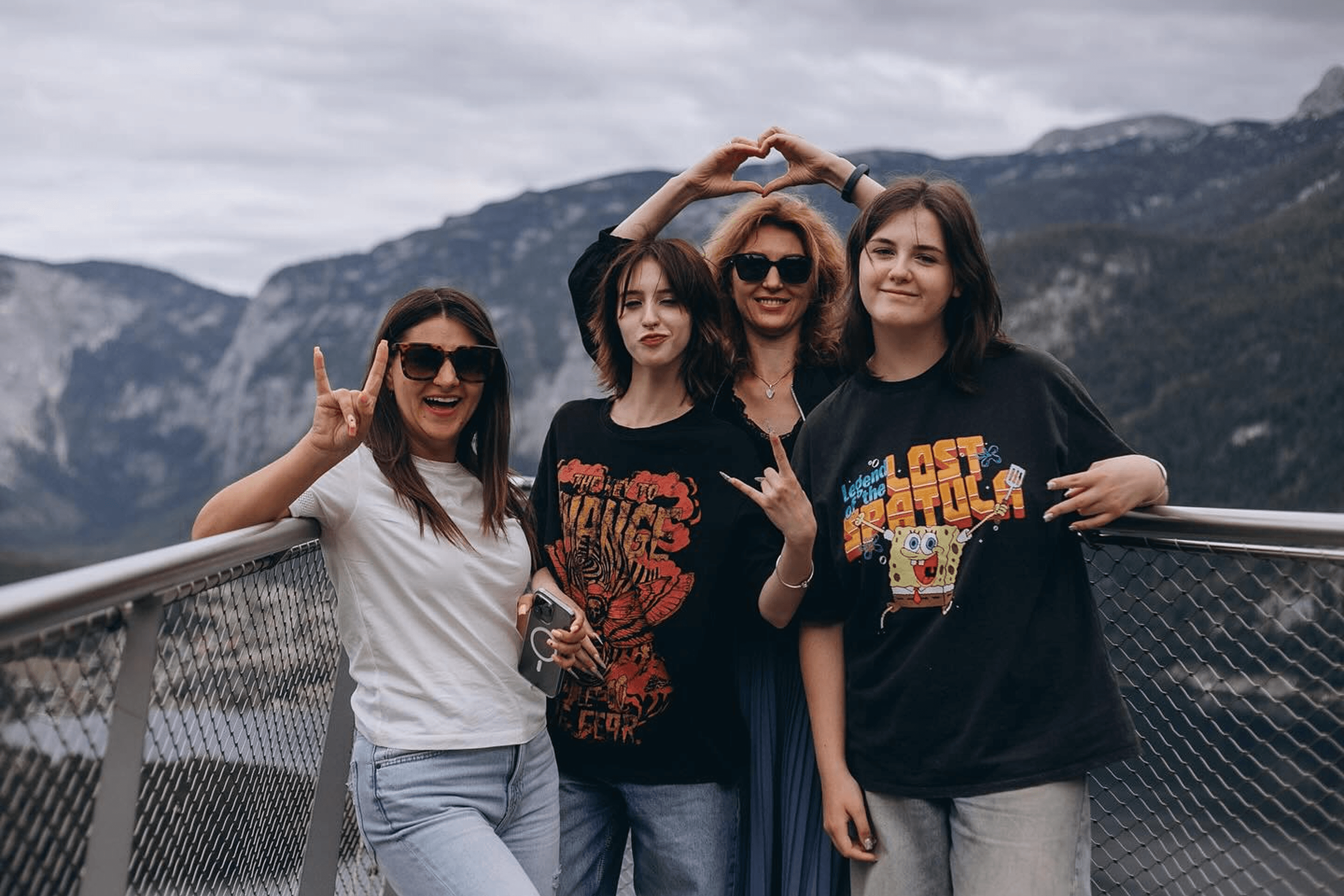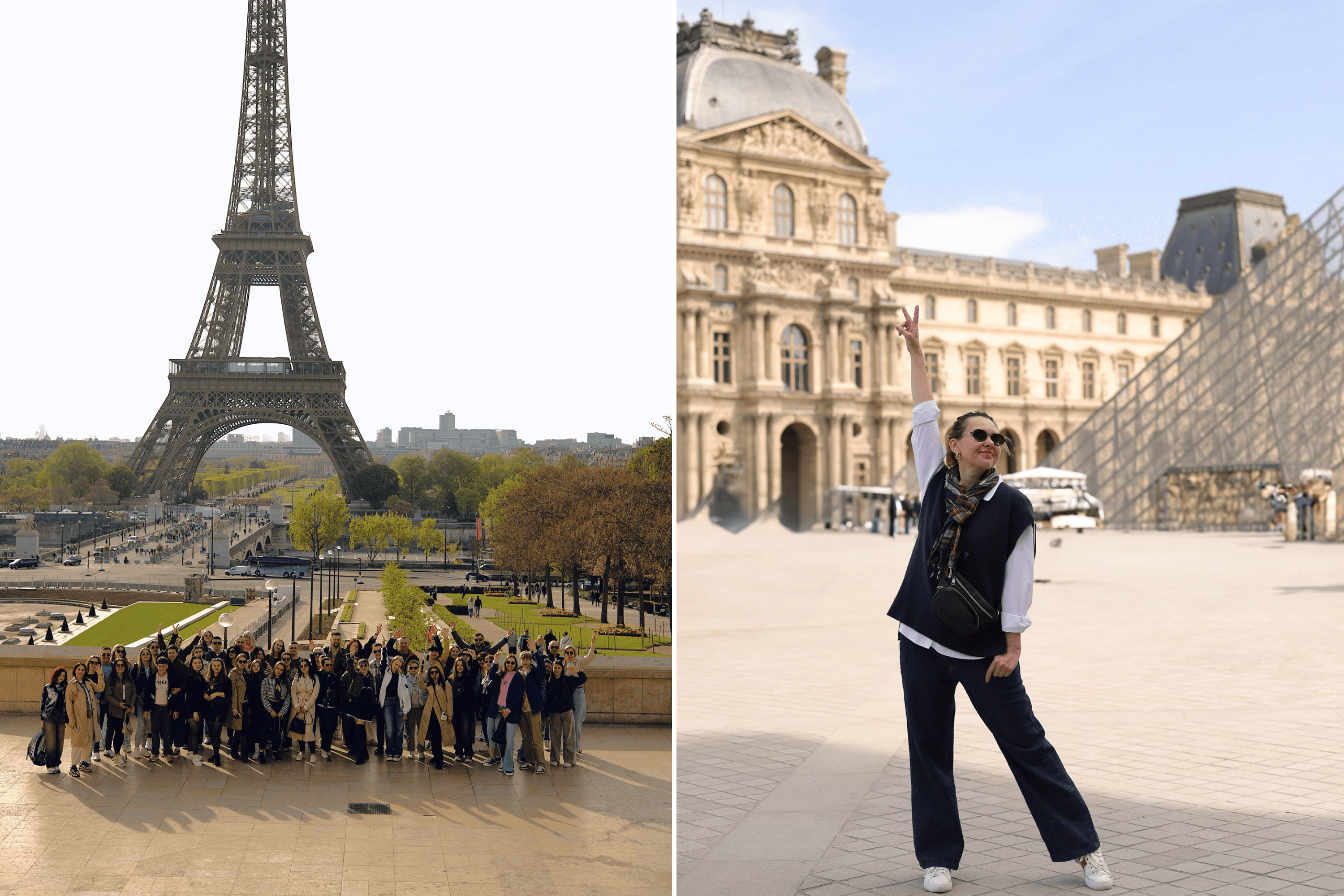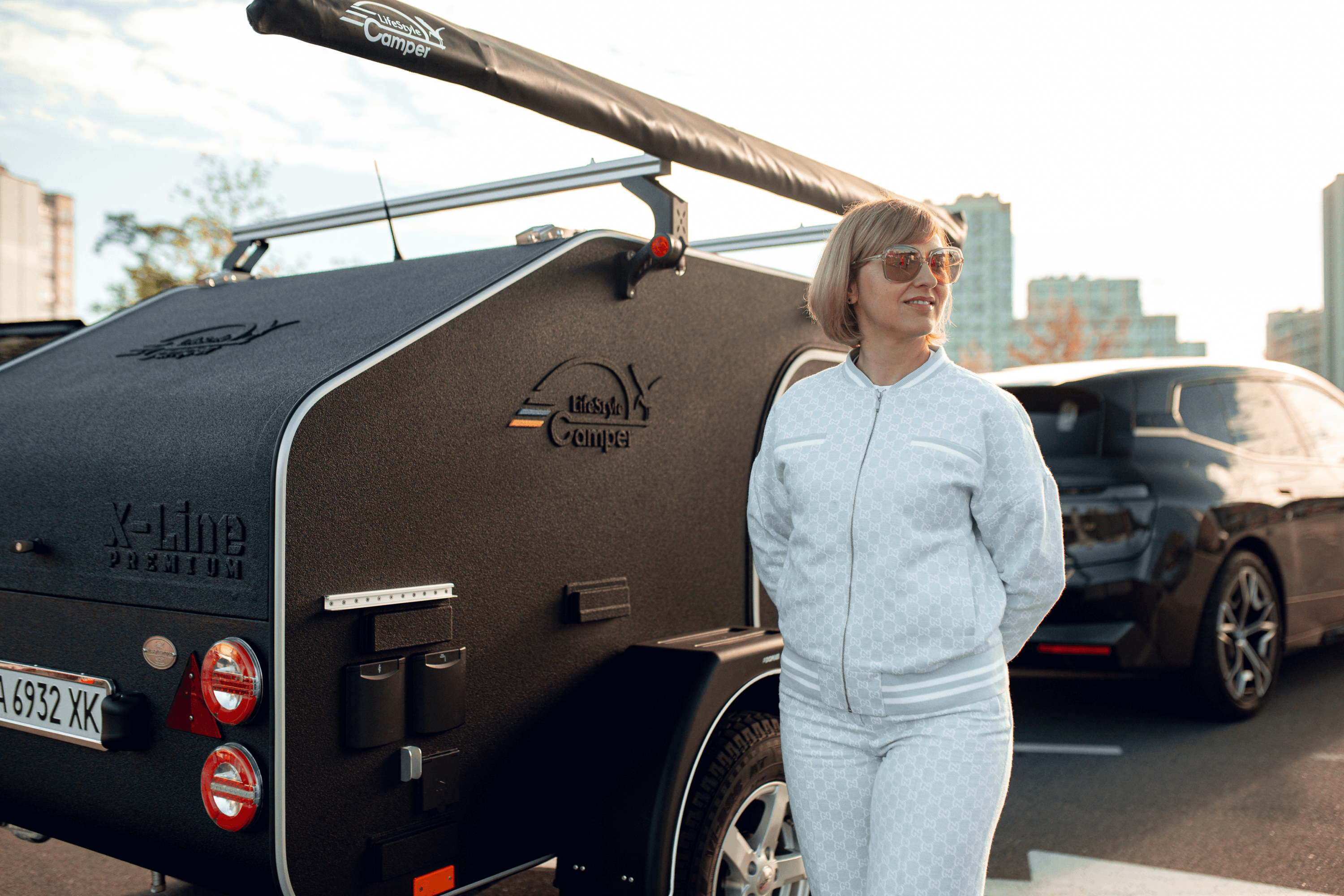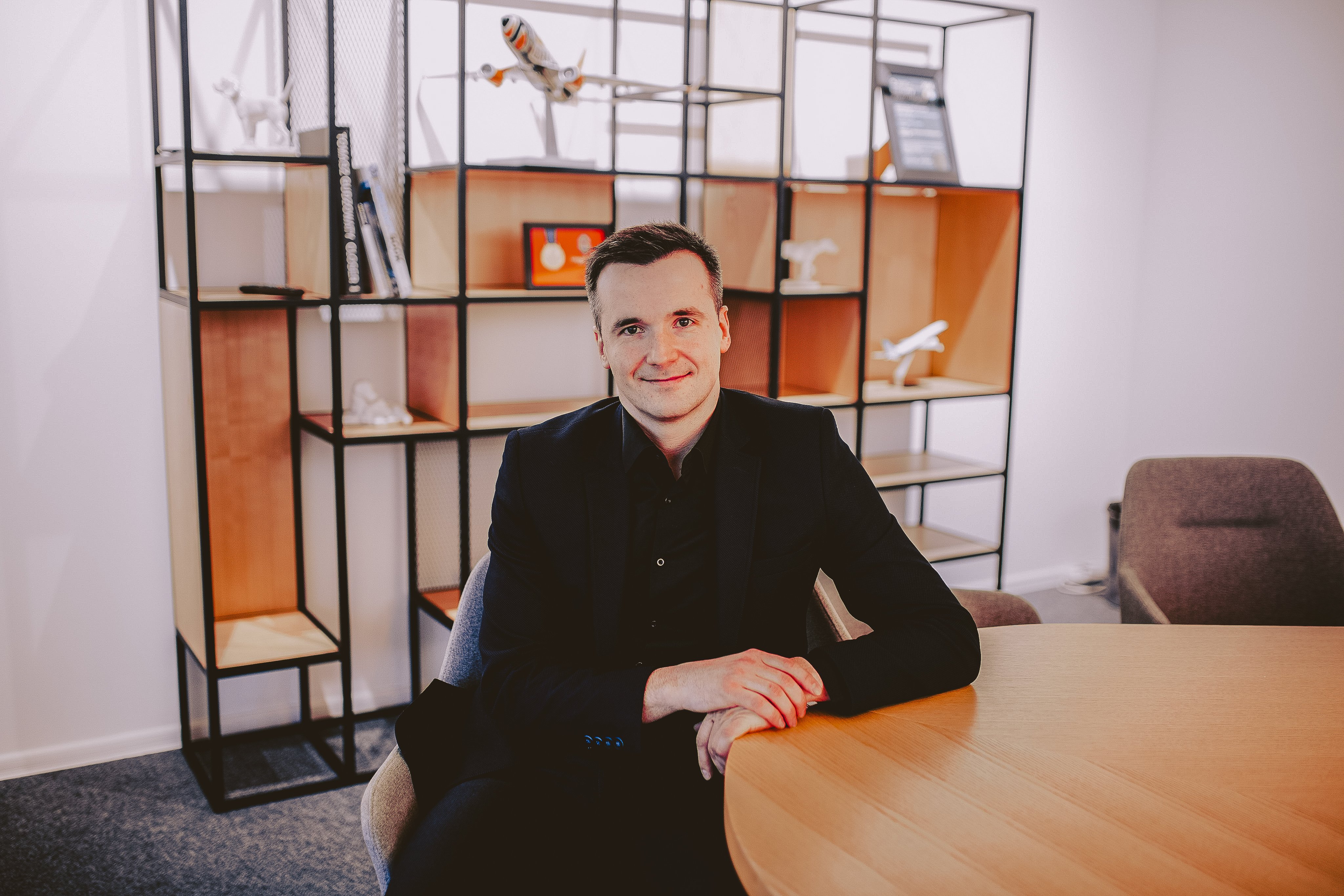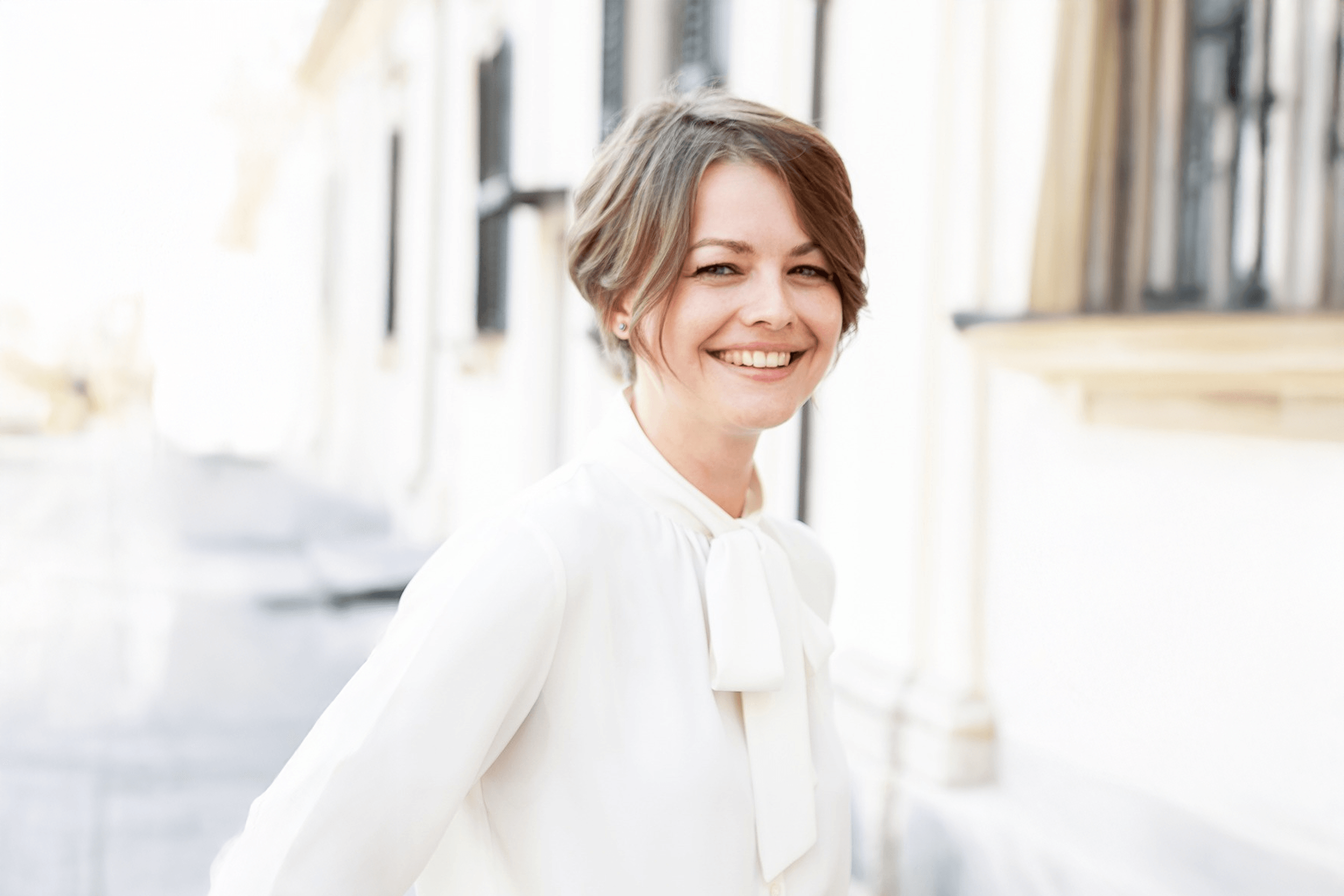The travel agency Jarotravel, founded by a Ukrainian refugee, took 270 tourists on 14 routes through 20 cities in 4 countries in 10 months.
How Iryna Bashyrova, a Ukrainian refugee in the Czech Republic, started a new business — this is detailed in the book “Phoenixes — Stories of Women Emigrants from Ukraine, ” published in May 2024 in the Czech Republic. This is a part of the chapter of the book, with the story of Iryna Bashirova, featuring her job search and the birth of her new business.
You fell so in love with the old houses, picturesque forests and hills, luxurious castles and the history of the Czech Republic that you can’t imagine yourself without them. But you lack money to travel because you’re a refugee with a young child. How can you turn your passion into your profession? Ukrainian Iryna Bashyrova knows the answer to this question.
Iryna was born in the small city of Kropyvnytskyi, founded in the 18th century. The city has been renamed several times, and it received its current name from the surname of a legendary Ukrainian writer and playwright who founded the first Ukrainian professional theatre. There are numerous archaeological sites, mounds and burial sites in and around the city. Over the years it has been home to the Cimmerians, Scythians, Sarmatians, Huns, Avars, Khazars and Pechenegs. From the 16th century through the first half of the 18th century, the lands of modern Kropyvnytskyi and the surrounding areas were part of the Zaporizhzhia Sich.
Iryna can talk about the history of her hometown for hours — almost all of her conscious life was related to history. In 2011, as a fifth-year student at Kirovohrad [previous name of Kropyvnytskyi] State University, she began working as a history and geography teacher at the Novomykolayiv Gymnasium of the Kropyvnytskyi City Council.
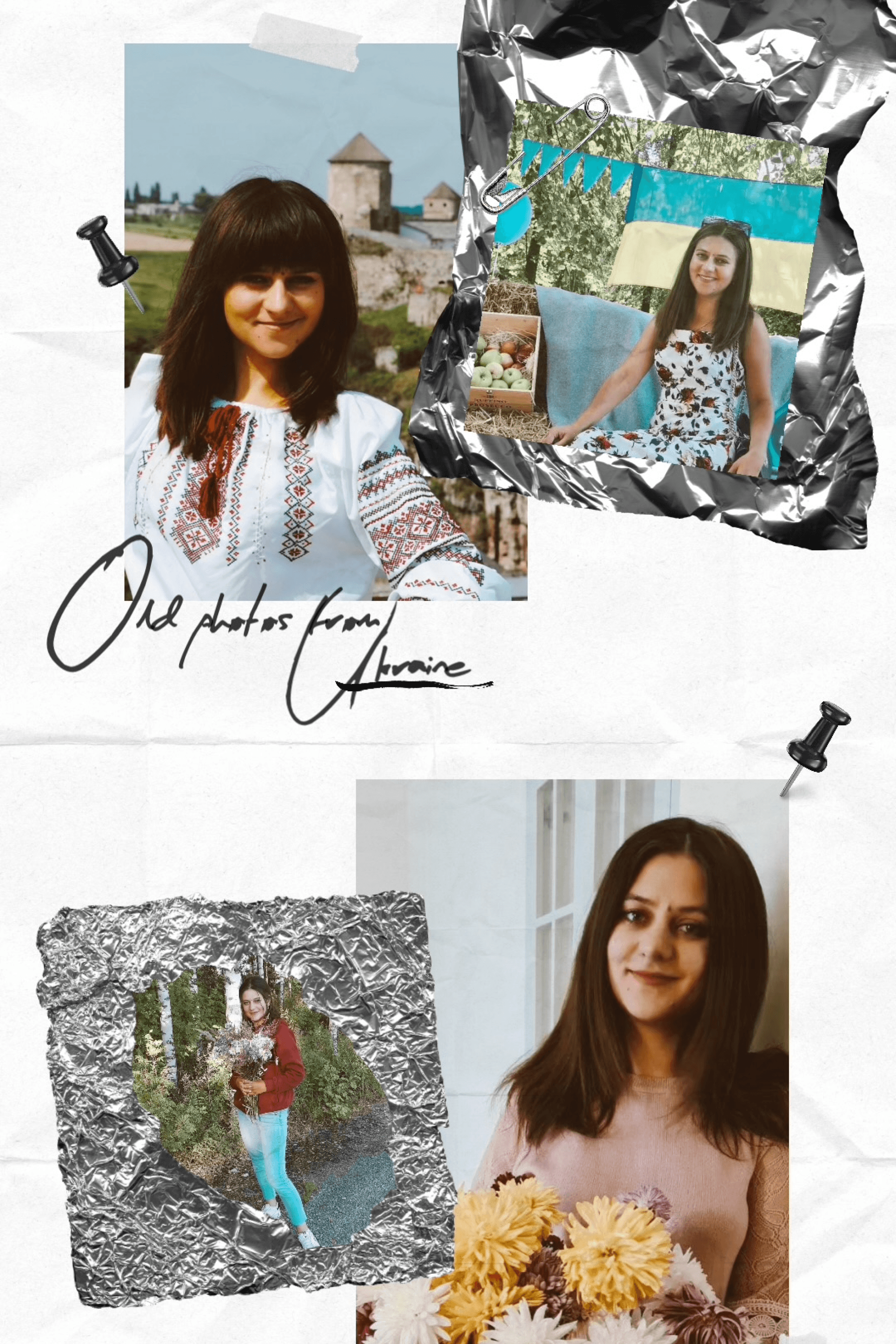
In this way, Irina spent ten years of her life. She had a wonderful daughter, whom she raised on her own. In November 2021 she left her job. “It’s hard to find a vacant teaching position in the middle of the school year, so I decided to go abroad to work. I left my daughter with my parents and went to the Czech Republic, planning to return in a month or two. I arrived in the Czech city of Hradec Králové in early February 2022,” says Iryna.
After moving, due to COVID regulations, she self-isolated for some time and then began working at a car factory.
“I had only managed to work for a week when the full-scale war began. I will probably never forget that day,” says Iryna. “I was working the night shift, and to stay awake I was listening to Ukrainian radio through my earphones when I heard the news that Russian troops had crossed the border and were shelling Kyiv. Almost at the same moment, I started receiving text messages from friends and acquaintances, but my family was silent, and that was the most terrifying part for me.”
Due to her deep knowledge of history, she could envision the unfolding of events and the fresh memories from books about World War II made it hard to breathe.
“When I went to bookstores, the shop assistants would often offer me ‘Fifty Shades of Grey,’ but I replied that I was looking for Vasyl Datsenko’s monograph ‘Green Gate, ’ which is about the death of two Soviet armies in the Kirovohrad region,” Iryna recalls. “After reading all the news and gathering all the information, I painted a horrific picture in my head. I understood that the Russians were advancing from three directions — south, east and north. This meant they were to unite their forces in central Ukraine, which is Kropyvnytskyi. The city where all my relatives and close people remained, and most importantly, my daughter. I started to panic, I needed to bring my daughter Ksenia to me in the Czech Republic.”
So Iryna began to think about how to evacuate her child. Since her parents were already elderly, getting to the Czech Republic from a village near Kropyvnytskyi with a little one was not easy for them. The feelings Iryna experienced while her child was making the journey to her are hard to describe. She kept carrying out her daily tasks and worked, and finally, the moment when she held her child in her arms marked a new beginning. At the same time, ordinary everyday problems did not take long to remind her of their presence.
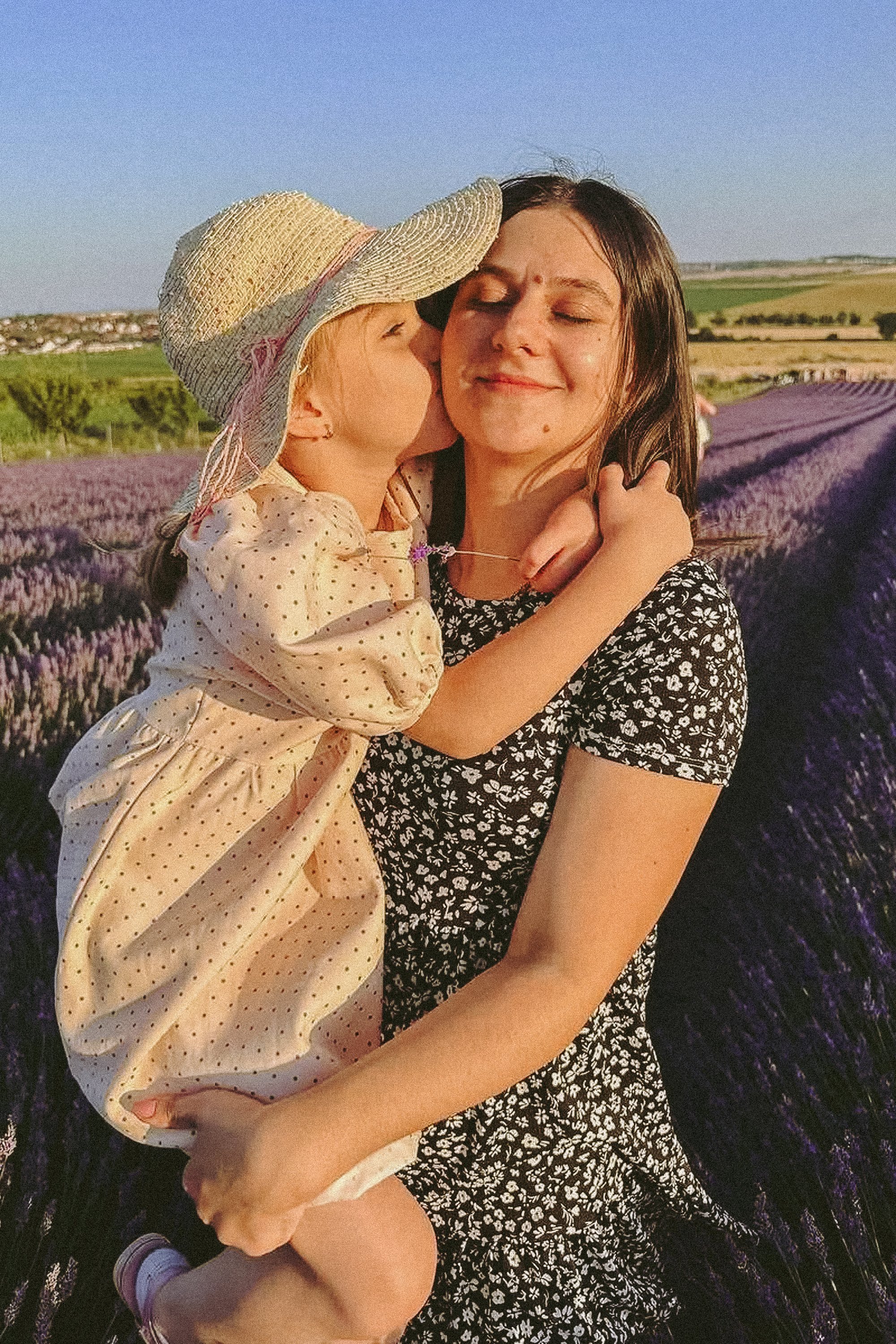
The issue of housing can diminish the joy of reunion.
“In the hostel where I was staying, we were allowed to stay for the night, but by 8:00 AM we had to leave the room with our belongings. And we had nowhere to go,” says Iryna.
Left with no roof over their heads, Iryna turned to volunteers who recommended an organization that helped Ukrainians. “I was approached by a tall man who called himself Pavel and offered accommodation with his family. I agreed, of course, as I had no other options. He spoke good Russian, showed us around the city, helped load our belongings into the car, and we drove to our new home. At the door of the apartment, we were greeted by a friendly woman holding a basket of candies — Ukrainian 'Romashka'. Her name was Jitka, and she told us that the candies were given to us by her Ukrainian students. It turned out we got into the family of a local politician and his wife, a teacher of the Czech language for foreigners,” recalls Iryna.
In the apartment, little Ksenia and her mother were given a separate room, and the office served as their kitchen. “I was incredibly relieved that we were together and safe,” says Iryna. The Czech family took it upon themselves to support the Ukrainian mother and her child. They helped find a kindergarten for Ksenia, as five-year-old children must go to preschool, helped them find a family doctor and enrolled Iryna in Czech language courses. However, the language courses were not to start until September, so Ms. Jitka began teaching Iryna some Czech at home.
The Ukrainian woman studied diligently, and when she heard that the Labour Office (Employment Centre) was launching a project that would need teachers to work with Ukrainian children, she was thrilled and allowed herself to hope for change. However, her level of Czech was not sufficient to get the job. So Iryna returned to work at the factory.
“My job at the car factory involved placing parts into a 200℃ furnace and then cleaning the hot parts of excess rubber. The parts varied in weight from 500g to 8kg. The work was hard, but it was especially difficult for me because I am only 5’1 and physically couldn’t reach the parts inside the furnace, so I had to crawl into some of the ovens and kneel. Honestly, the Czechs were shocked. My hands, forehead and other body parts were always burned. After work, I could barely drag myself home.” recalls Iryna.
Iryna was highly motivated to learn the language. At home, she would sit with Czech textbooks and, together with her daughter, work through ‘jsou’ and ‘jste.’ “We had an advantage — we had access to a large library at home,” says Iryna.
After all, the library was about the only thing they had.
“Our room was almost empty. We had a sofa and a desk. A few days later Pavel brought a wardrobe, but he didn’t have time to assemble it, so it became my task to complete within a week. This seemed impossible for me, so I began looking for someone who could do it. I asked around at the factory, but no one could or wanted to help. The girls at the factory advised me to ask Sasha. Sasha helped me assemble the wardrobe, and we started communicating,” Iryna says.
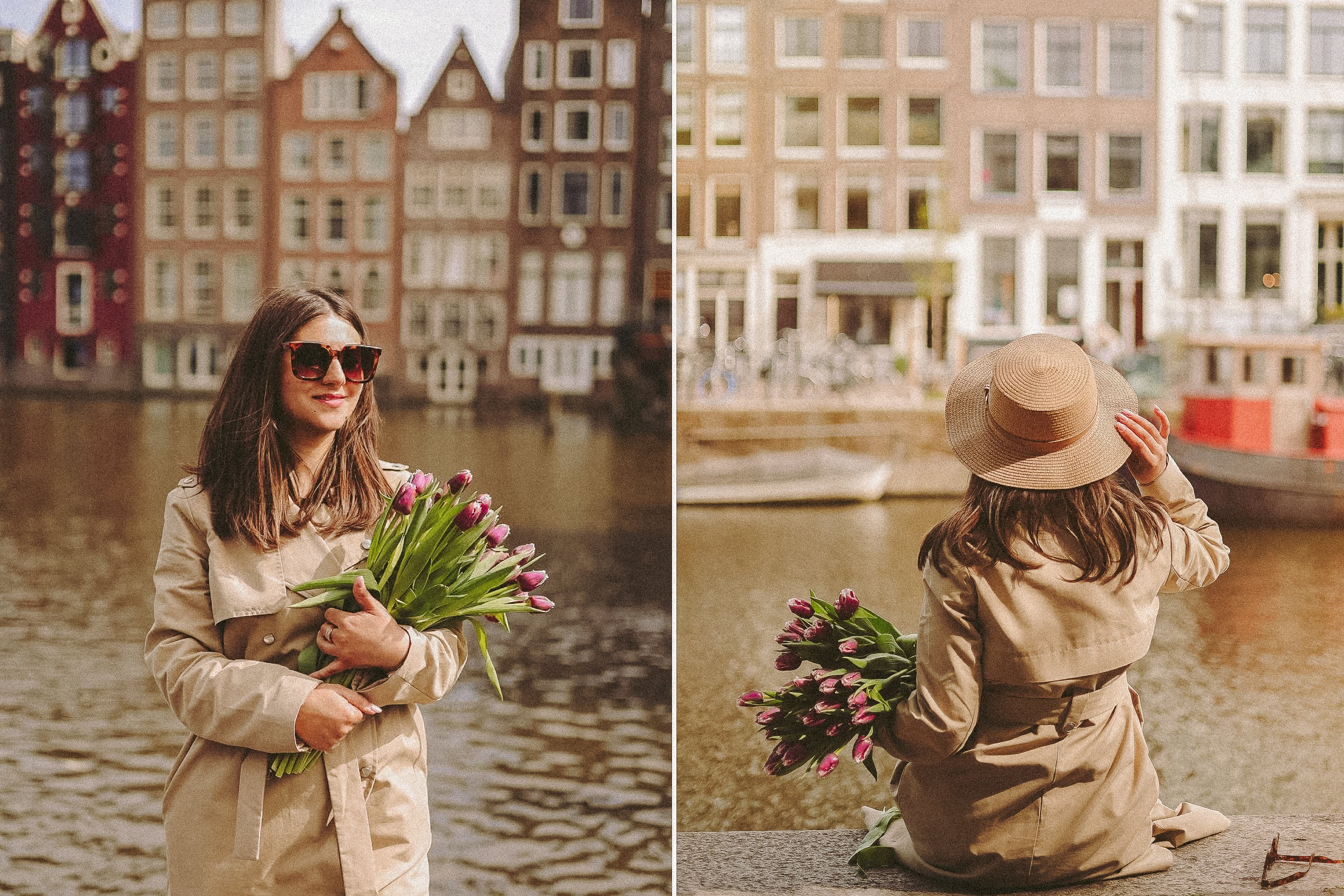
Their conversations became warmer, and Iryna even dared to ask Sasha to watch her daughter when she had to go to language courses. They quickly found common ground and, thus, thanks to the wardrobe, Iryna found a close friend.
Apart from learning the language, Iryna also worked on getting her education recognized, known as diploma recognition. She found a volunteer organization that provided step-by-step information for diploma verification. Iryna diligently gathered the necessary documents and translations and sent her diploma to Prague. She waited three months for the recognition of her historian’s diploma and Master’s degree in history. At the same time, she found out that language courses for teachers were being offered in her city and enrolled in them. “And when I came to the first lesson in September, I was in for a surprise — the courses were taught by my Mrs. Jitka,” Iryna says.
After learning some of the language, Iryna began searching for a new job. This time, the Labor Office offered her a position at a printing house, where she would pack parcels and assemble various printed materials.
“One evening in our teachers’ chat (only teachers attended the language courses) one of my classmates mentioned that a school — we didn’t even know which one — was looking for a teacher’s assistant. There were many interested candidates, so we all submitted our applications and waited to be invited for an interview. Out of all the applicants, I was the one who got the job. So starting from January 1, 2023, I began working at the school,” Iryna recounts.
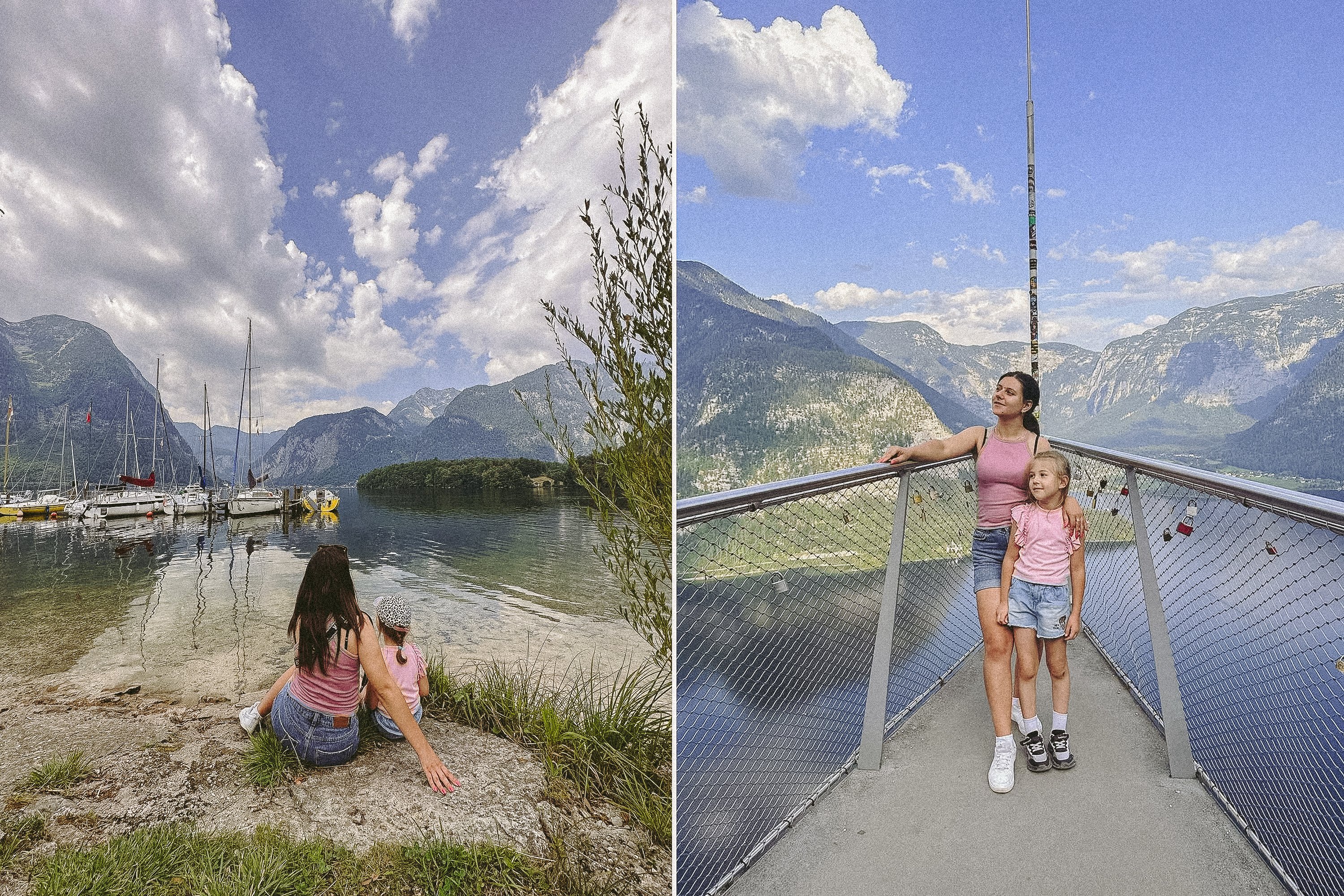
But that wasn’t the last piece of good news. It turned out that this school was located right across from their home. Meanwhile, little Ksenia was going to another school, which required a 40-minute commute with two changeovers. However, Iryna didn’t give up, instead, she adjusted her daily routine. Now, she woke up at five in the morning, prepared breakfast, woke and dressed her daughter for school and by 6:40 the little first-grader was standing at the doors of her school. At the same time, Iryna would head to her job, where she needed to arrive by 7:30.
That’s how they lived for almost a year. In September 2023, Iryna managed to transfer Ksenia to the school where she worked. Since then, they go to work and school together which gives them a bit more time to sleep.
“I enjoy working as an assistant. I go to different classes and help both children and teachers. I mostly work with first graders and children with special needs. I also teach Czech to the little first graders, ” Iryna explains her duties. “But the hardest part for me is communicating with parents, since any issues with parents are settled in my presence. And when I go home feeling down, I remember the factory, my burned hands and the incredible physical exhaustion, and I realize that there’s no turning back for me. I can’t give up. I tell myself that I’ll break through.”
Iryna found another source of comfort in traveling. Visiting beautiful places and experiencing the atmosphere of centuries-old palaces brought her joy. Fortunately, there are many of them in the Czech Republic, and they are wonderful.
“When I got a bit more settled in the Czech Republic, I tried to arrange visits to interesting places on my own. I thought it wouldn’t be difficult — just get on a train and go to Prague, for instance. Getting there is indeed easy, but reaching other places without a car is not exactly easy,” says Iryna. “My first attempt to get to Dvůr Králové nad Labem by train was successful, but from the railway station to the zoo, Ksenia and I had to walk for two hours. It was a public holiday, public transport was not available, and we couldn’t get a taxi. The second attempt was to visit Kuks Castle. We made it to Jaroměř but then had to wait for three hours for the next train to travel just 19 minutes. We didn’t dare to walk as it was too far. We got cold (it was autumn) and ended up returning home.”
It would’ve been easiest to give up on solo travels there and then, but not for Iryna. After this setback, she was stricken with the idea of creating organized excursions. To bring her idea to life, Iryna started gathering information — she got familiar with the laws of the Czech Republic on tourism, then found private licensing courses that trained tour guides in Prague. But she didn’t have a car and didn’t know anyone who could help her take people to interesting places.
And the solution was found while solving another problem. Iryna’s daughter, Ksenia, had to leave Ukraine using only her birth certificate because she didn’t have an international travel passport. Once Iryna found permanent employment, she began looking into getting an international passport for her daughter. Doing this in the Czech Republic was not easy — at that time, there were only two Ukrainian consulates where international passports could be ordered: in Brno and Prague. However, booking an appointment online was a challenge, as slots seemed to be filling at the speed of light. Iryna didn’t manage to secure an appointment for several months.
At that time, the Ukrainian state-owned enterprise “Dokument” opened in Poland, offering these services to Ukrainians. The nearest location was in Wroclaw, where passports could be ordered on a first-come, first-served basis. Iryna resolved the question of how to get there early in the morning to secure a spot in the queue surprisingly quickly.
“I found transport providers who take people to Wroclaw for the ‘Dokument’ services. On the bus, I met Ihor, who was also getting documents for his children. It turned out that he was the father of one of my students and we lived nearby, and our children were the same age. We started talking more and I discovered that Ihor has his own company in the Czech Republic. For me, it was like hitting the jackpot. I offered him to try himself in tourism and he agreed. We then began preparing all the necessary documents and licenses,” Iryna explains.
So while Ihor handled the legal matters and obtained permits for transporting people, a persistent Ukrainian, Iryna, applied and enrolled in her dream tour guide course.
“I took a leave at my own expense at school and went to Prague. I was at ease, knowing my Ksenia was in good hands with Sasha, ” Iryna recounts. “I had to complete a four-day course, with classes starting at 8:00 a.m. and lasting until 4:00 p.m. We had lectures and practical sessions, including educational tours around Prague. I was the only Ukrainian in the course, but the Czechs were very supportive of me, especially the lecturer (who is also the owner of the school and a tour guide herself). She’d explain things I didn’t understand in the terminology since we were studying not only the methodology of conducting tours but also getting familiar with the main regulatory and legal documents related to tourism.”
Finally, Iryna immersed herself fully in her passion. She attended classes with joy and upon completion of the course, she was expected to sit exams in Czech history and geography, world history and geography and knowledge of the laws. So she had to prove her knowledge of five different disciplines and write a thesis. Iryna’s topic was “Karlštejn.” Additionally, she had to guide a tour of Wenceslas Square — the central square of Prague.
“I could choose the exam date, so I selected July 9th. Children at school went on holiday, I was on vacation and I also signed Ksenia up for a dance camp. First of all, I wrote my thesis. They sent me specific guidelines and I had to follow all the rules for writing the paper, moreover, all in Czech. I wrote the paper myself,” Iryna recounts.
Then the Ukrainian began studying Czech history, specifically in Czech, to understand the terminology, which differs from Ukrainian and world history.
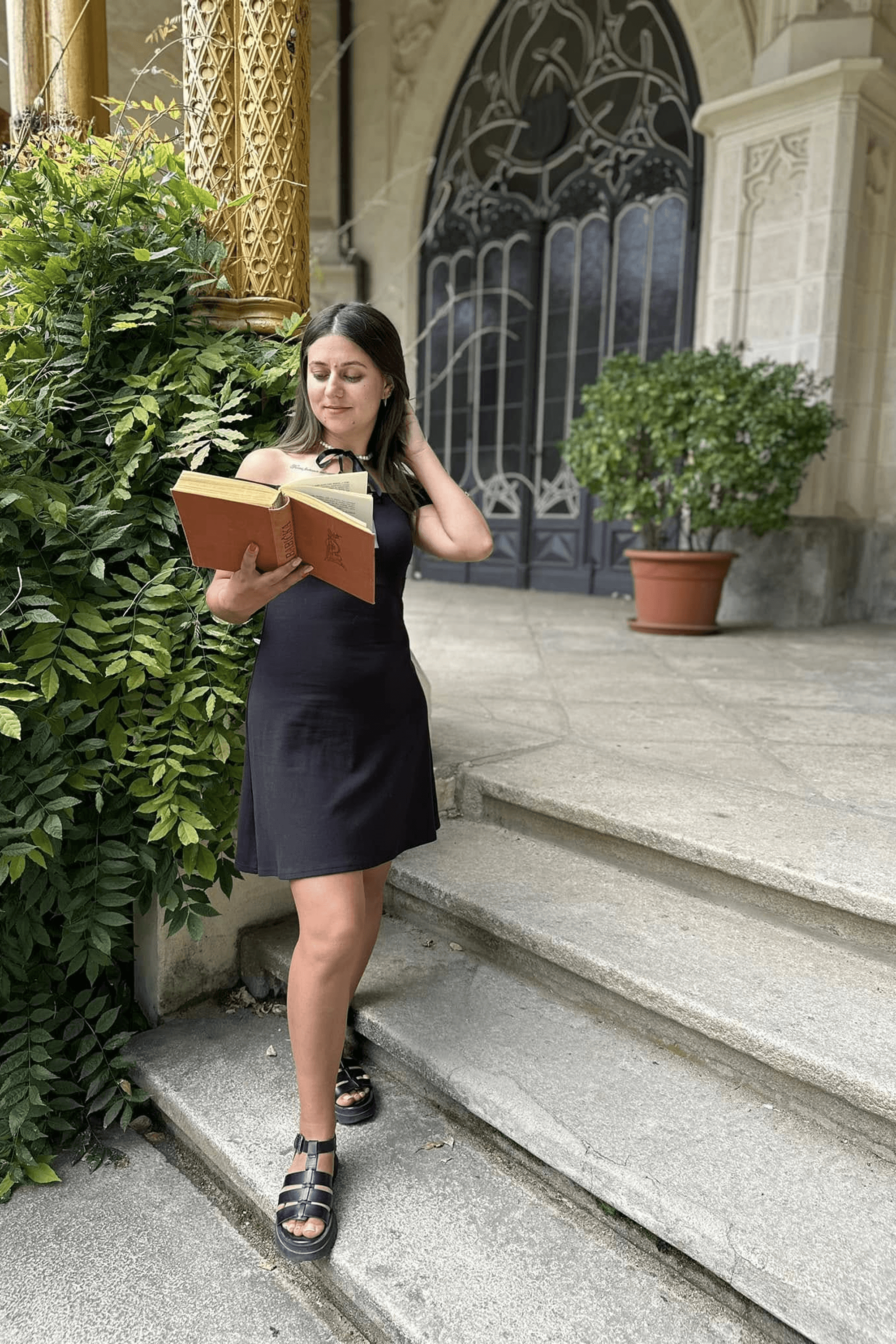
“On the day of the exam, I was incredibly nervous. When the examiner entered the room and said that anyone who scored less than 75% correct answers would have to retake the paid courses, I lost control. I couldn’t concentrate, felt dizzy, my vision blurred. I was sweating so much that I couldn’t hold the pen — it just slipped from my hands. But somehow, I pulled myself together and started on the tests. The tests were difficult, there were many questions about Czech culture, writers, architects and more. If I hadn’t had a background in history, I would’ve failed the test. Learning that amount of information in just one week is impossible. We had two hours to complete the test, and after we finished, the examiner said he would play a 'difficult tourist' today. That’s how we faced our oral exam,” Iryna recounts.
Iryna was the second to go, the first student was answering questions for almost an hour, she managed to score 75% on the test. Then came the defence of her thesis. Not only did she have to present it, but she also had to answer tricky questions. All her reading in Czech paid off here. The most challenging question turned out to be about famous sites in the world.
“I drew a question about the Egyptian pyramids. That was a shock — I didn’t expect that,” admits Iryna. “I can talk about the pyramids, but not in Czech. I was saying something, but wasn’t sure if they understood me. After 1.5 hours of the oral examination, my suffering ended, and I proudly received my diploma for completing the course.”
With her new diploma in hand, Iryna could finally fulfil her dream of traveling and giving tours legitimately. She registered as a sole proprietor and received a license on a plastic card from the ministry. Now, she holds two jobs: an assistant at a school and a tour guide.
“Working as a tour guide is something incredible for me. I get immense joy from traveling and interacting with different people,” says Iryna.
In the toughest moments, she tells herself, “There is no turning back, I can do this.”
Iryna co-founded the Jarotravel agency together with Ihor. At that time, Ihor was already running his own transportation company in the Czech Republic. For their tourism activities, they needed to obtain transportation licenses. Ihor consulted with lawyers and arranged these. Their starting capital came from selling their car and an apartment in Ukraine. With these funds, they purchased two comfortable tourist minibuses which they now use for tourist transportation.
Iryna registered as a sole proprietor. This type of employment is possible without starting capital and with a temporary protection visa. However, to work as a tour guide she needed to obtain a license. Iryna spent almost 15,000 CZK — nearly 25,000 UAH — on registering as a sole proprietor and obtaining the license.
Iryna says the tourism business is risky, as sometimes the required number of people in a group may not be met and entrance tickets for museums can be difficult to purchase. Iryna and Ihor do not take advance payments from tourists, so occasionally someone may cancel their participation at the last minute.
“We don’t cancel excursions, and it’s good if our expenses break even when we return”, she notes.


